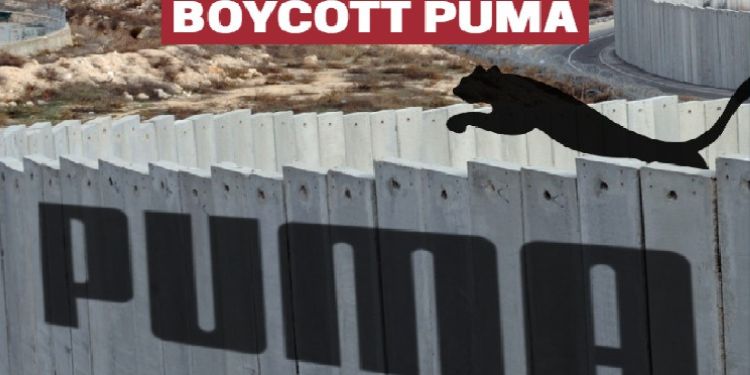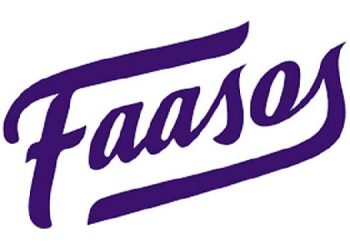The 2023 Israel-Hamas war has been raging in Gaza for over a month. The death toll is rising and international attention is peaking.
Amid the ongoing war, there is a boycott call against companies with alleged ties to Israel. According to reports, Malaysians are being urged to boycott several brands including American food franchises like Burger King and McDonald’s. In South Africa, there is a call to boycott Puma, the main international sponsor of the Israel Football Association (IFA). A few days back, Turkish parliament removed Coca-Cola and Nestle products from its restaurants’ menu over the companies’ alleged support for Israel.
The website of Boycott, Divestment and Sanctions (BDS), a a Palestinian-led movement promoting boycotts, divestments, and economic sanctions against Israel, has featured a list of brands to be boycotted due to their alleged collaboration with the Israel Defence Forces (IDF).
The global boycott movement is garnering traction on different social media platforms. Several Instagram pages are encouraging the public to be heedful of their consumer choices and also educating them to avoid patronising the brands which are alleged to have close ties with Israel.
We have seen several boycott movements taking shape in the past, against books, movies, politicians and of course, brands. Most died down with time. But should the boycott movement in the wake of a war be viewed differently?
We asked: Are organised boycott efforts in times of conflict here to stay? Will such boycotts last beyond the conflict?

“Organised boycotts work well if they are for a universal or a highly local issue involving environmental concerns, labour disputes, human rights abuses, etc. In the case of ethnic, political, or religious issues, the boycott tends to be belief-oriented, making it subjective in nature and largely driven by sentiments and emotions. With today’s dynamic international relationships and highly influential social media opinion architects, no stance is permanent,” observes Pavan Padaki, Author of Brand Vinci and branding coach.
Padaki further notes on the impact of boycotts on Israel’s economy.
“It is a topic of debate. According to a recent report, the Israeli economy is far less prone to boycotts than it was in the past. The report suggests that Israeli exports have evolved into being more unique and of higher quality, which implies that Israeli products cannot be substituted that easily by consumers. With Israel’s exports accounting for around 28.32% of its GDP in 2023, it is difficult to predict how boycotts will affect Israel’s economy in the future. However, it is worth noting that Israel has faced boycotts in the past, such as the Arab boycott that started in 1948. Despite the boycott, Israel’s economy has continued to grow and diversify over the years,” he says.
According to him, the past history indicates that organised boycotts based on political stances do have a tenure that is directly proportional to the extent of moral outrage, social media and media buzz, political climate, and consumer-wokeism.
“A boycott is a reaction, not a permanent solution,” he adds.

According to Brand Guru Jagdeep Kapoor, Founder Chairman and Managing Director at Samsika Marketing Consultants, observes, “Consumers buy and use brands. They do not buy companies or countries. That is the beauty of brand building. Brands transcend all barriers, whether physical or mental. Ultimately, consumers look for perceived value in brands, and the benefits brands provide, based on consumer needs.”
On whether the boycott will last beyond the conflict, he observes that consumers do not get distracted by ‘boycott’, individually or collectively.

On the other hand, N Chandramouli, CEO at TRA Research, notes that while the boycott movement will have a lasting impact on brands, the movement on international brands will also lead to the emergence of alternatives.
“The current boycott is a normal kind of statement made by countries or people against the brands for supporting genocide. This will have a lasting impact on the brands. There are certain brands that emerge as a result of the boycott. Big Cola which is a cola brand which is an anti-Pepsi, anti-Coca- Cola kind of brand and anytime when there is an American support to issues like this, especially in the Arab world, the Big Cola sales have spiked. Hence, the result of these boycotts is the emergence of alternate brands. A kind of vacuum has been created by the boycott movement; there are chances for entrepreneurs to come in and establish a brand of their own. For example Starbucks is alleged to be supporting the IDF; an alternate coffee chain can emerge or grow,” he adds.

Nishad Ramachandran Managing Partner Spread Design & Innovation, poses: “What is the right thing for brands to do when they are caught up in zones of conflict?”
He explains, “Being seen as doing the right thing in their home countries, or being on the right side of public opinion in their adopted ones? Big brands are profit machines. But now they are being evaluated on being right morally in a conflict where neither side is clearly right. So do they stand the moral high ground and exit these markets, long term, or are these short-term moves? Rarely do brands exit markets on the grounds of virtue. Such moves tend to be tactical, lying low until the public opinion shifts. And once the mood changes, they are back, waiting to encash on their equity.”
Brands which are caught in the crossfire for allegedly taking sides are doing just that – waiting and watching, hoping that this too will pass.
Feedback: [email protected]

















